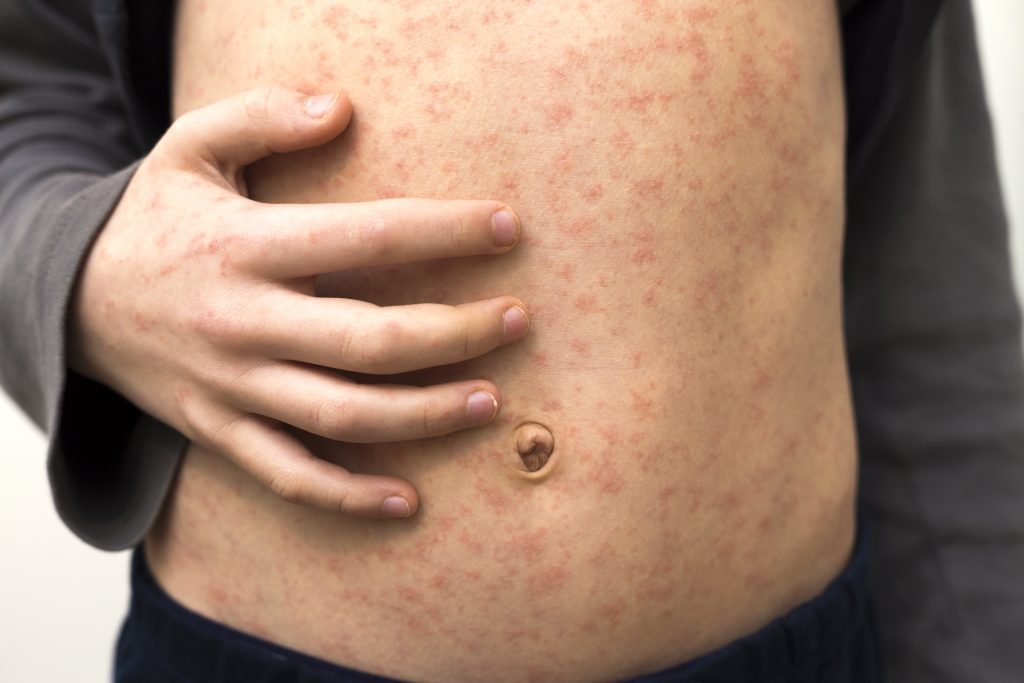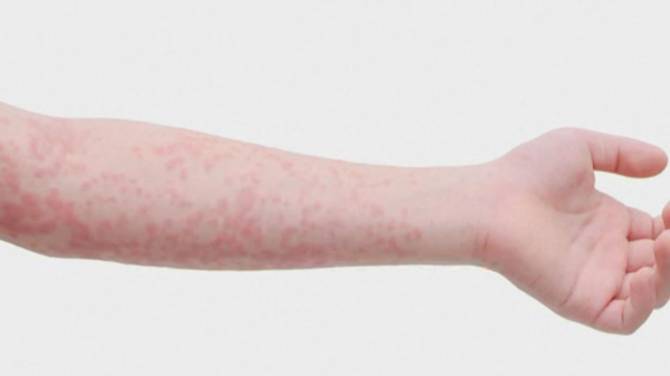The Simcoe Muskoka District Health Unit reported on Wednesday morning that the initial instance of measles has been verified in the region.
The health unit indicated that it has obtained confirmation that a Simcoe Muskoka resident has tested positive for measles.
Health authorities state that the individual is an adult who has not recently traveled or been in contact with a known measles case.
The health unit is contacting known contacts who may have been exposed.
Officials say that the almost eradicated disease has begun to reappear in recent months due to a decrease in vaccinations.
Other instances have already been reported by health units in Branford, Hamilton, London, and the Peel and York regions.
Health Minister Mark Holland expressed significant concern about the global measles outbreak and its potential impact on Canada during a media conference last week.
“We’re observing a lot of illness that was nearly eliminated, starting to resurface due to vaccine hesitancy,” Holland told reporters. “We have to remove politics from health information. We need to be a society that follows scientific research … There should be no partisanship in adhering to the best health advice rooted in science and evidence.”
SMDHU recommends that anyone who suspects they may have been exposed to the measles virus should inform the Simcoe Muskoka District Health Unit of their exposure by calling Health Connection at 705-721-7520 or 1-877-721-7520 Monday to Friday between 8:30 a.m. to 7 p.m.
Health authorities advise individuals to confirm that they and their family members have received two doses of the measles vaccine (MMR or MMRV); those born before 1970 likely had measles as a child and are immune.
The Simcoe Muskoka District Health Unit cautions that the public may have been exposed at the following locations:
Monday, March 4
- 8:30 a.m. – 6:30 p.m. Simcoe Muskoka District Health Unit, 2-25 King St. South, Cookstown
Tuesday, March 5
- 8:30 a.m. – 2:30 p.m. Simcoe Muskoka District Health Unit, 2-25 King St. South, Cookstown
12 p.m. – 3 p.m. Walmart Supercentre, 30 Dunham Dr., Alliston
Thursday, March 7
- 8:30 a.m. – 12 p.m. Queens Medical Health Centre, 238 Barrie St., Thornton
- 9 a.m. – 12 p.m. Sobeys, 247 Mill St., Angus
Friday, March 8
- 11:30 a.m. – 2:30 p.m. Moon Flour Bakery, 4 Massey St., Angus
- 11:30 a.m. – 2:30 p.m. Freshii, 285 Mill St. Unit #3, Angus
- 4 p.m. – 6:30 p.m. Collingwood General & Marine Hospital Emergency Department, 459 Hume St., Collingwood
The health unit cautions that measles is a highly contagious viral infection that spreads very easily through airborne transmission.
The measles virus can remain in the air or on surfaces for up to two hours, with symptoms beginning seven to 21 days after exposure; they consist of fever, runny nose, cough, drowsiness, and red eyes, according to health officials.
Health officials indicate that individuals with measles may develop small white spots in the mouth and throat in some cases, and three to seven days after symptoms start, a red, blotchy rash appears on the face and then spreads down the body.
"The risk of getting measles is low for people who have received two doses of measles vaccine or were born before 1970. However, many children have been delayed in getting their regular childhood immunizations, including the measles, mumps, and rubella (MMR) vaccine. People who have not had two doses of measles vaccine are at higher risk of getting the disease," stated Dr. Gardner, SMDHU medical officer of health.
Health officials say that while most people who get sick recover without treatment, measles can be more serious for infants, pregnant women, and those with weakened immune systems. Even people who are up to date with the measles vaccine should monitor themselves for symptoms of measles for 21 days after being exposed.
The health unit recommends individuals and families to make sure they are up to date with their measles vaccines and to stay alert for symptoms even if they have been vaccinated.
– with files from Global News’ Katie Dangerfield




